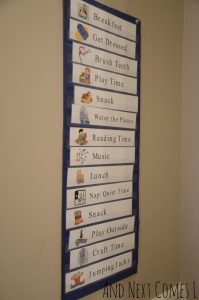
Making Independent Choices
Introduction
ScheduleParenthood is a continuous journey. Making Independent Choices, This blog is on Making Independent Choices. As our children grow, we as parents evolve along with their growth and development. We cherish the different stages in their lives. Each phase presents itself with its own set of joy and challenges. The pre-teen and teen stages are considered to be the most challenging of all the phases. Making Independent Choices, The children feel independent and they need their space. They refute, revolt, and yearn for control. They demand to be treated like adults, not like little children anymore whom we can dictate or lure with sweets and toys.

Resistance and Opposition
For children with special needs, the situation gets, even more, trickier, because of limited verbal capabilities. The emotions come out stronger. We witness a temper tantrum or a serious meltdown. We all know that this is primarily because of their inability to express their frustration. A door is slammed or Legos scattered. Tears fill those endearing eyes leaving the parents desperate and frustrated.
The therapists and the doctors tell us to follow a strict predictable schedule and to avoid surprises. They suggest that we plan and prioritize the tasks for them to keep things in order. Making Independent Choices, We chalk out a schedule right from the time they wake up, brush their teeth, get ready for school, till supper, and winding up to sleep.
This technique works for few years until our children reach a particular age. After that, as with every child, our children’s minds also develop. They begin to resist our control. We tend to arrive at a predicament where even a planned task becomes difficult to execute. Our son would agree on the schedule in the morning but when it came to the time of action, there was resistance. With COVID lockdown and virtual education, parents have additional responsibilities. The stress indices are also high and act as catalysts to potential meltdowns.
Possible Solutions
Reward System
The reward system is the magic potion recommended by the therapists. An organized, structured reward chart is considered the answer to all our problems. But with the lockdown in place, it is difficult to entice a child with different types of rewards and make them work hard to achieve the reward. Schedule

Reasoning
Reasoning and convincing is a laborious task. It fails spectacularly when it comes to pre-teens and teens. With our children especially, it can potentially lead to disastrous circumstances. Their resolve and obsession to gain control are immense, be it verbally or non-verbally.
Relinquish Control
Another positive parenting tip is to relinquish control. Let the children face the consequences. While the neurotypical kids get adjusted to these consequences better, our children still need guidance. They need direction and struggle with carrying out their activities independently. They might not be able to comprehend the gravity of the situation or the consequences of the outcome very well. The onus is on the parents to be compassionate, understand and work around the limitations. So, the ball is again in our court.
We are in a predicament where we are facing stiff resistance, have to relinquish control but at the same time are forced to guide our children through their academic progress or independent executive functioning.
The alternative of implementing Choices
The paradigm of choices is an interesting option to explore at this juncture, where we give them control partially but at the same time hold the reins in our hands. We offer them a choice to decide the time of the action, the course of the duration. They get to contribute in the when, the how and the where, but the underlying absolute is that the task has to be completed. When the schedule is drawn for the day or the week, instead of blindly listing it for them, we give them choices to decide when a task has to be scheduled. It could be noon, evening, the next day, or two days after, but the task has to be completed before the end of the week.
Discuss Schedule
This does need consensus from the educational providers and the therapists to adjust the timings. We will have to involve them in the planning of the schedule.
The reward system also has to evolve as they grow up. It cannot be a toy or a treat all the time. We have to change the rewards to an outing to a park or a pet store or a grocery store. It could also mean taking partial control or giving partial allocation of their favorite activity if the task is incomplete. More time and more control on the favorite activity if they finish all their tasks.
Conclusion
So, to summarize, we will have to give extended time to complete an activity and vary the allocation of their reward based on how they perform for the week. The underlying principle remains the same, the only thing which changes is that they also contribute to planning their tasks. They also get to discuss the perks associated with the tasks.
If they do not agree on a perk, we have no option but to repeat and review the exercise with them till we reach an agreement.
The struggle is never-ending, but involving them in planning rather than dictating the schedule does reduce the resistance and contain the meltdowns.
Our children need our assistance in every step ten-fold than the neurotypical children. Be it emotional regulation or social interaction or expression of speech. Absolute black and white is the preferred path for them as they do not understand the shades of grey. But trying to gain control and dictating their course of action does seem a dubious path to take as they step into pre-adulthood or adulthood.
A visible or tangible reward, understanding the boundaries of control, and letting them participate in their own predictable course of life seems a viable option to explore before succumbing to the griefs of anxiety and meltdowns.
Most of the time, the general positive parenting techniques work fine with our kids too. Albeit considerable tweaking and liberal accommodations, we need to address the limitations of our children. However, each child is different. So is each parent and their parenting techniques. We all act according to the severity of the circumstances which unfold before us. But with social platforms and the plethora of information available on the internet, it does not hurt to read and hear the struggles of other parents and see if we can follow their advice and it can make our life, a little easier.
If you are looking for help with your child’s behavior management, speech development, or academics, you can contact us for online consultations.
For more ideas check out our other blogs
- Joining in – A social story - June 23, 2021
- The Gadget Fit - May 31, 2021
- The Homework Struggle – A short story - May 15, 2021

Leave a Comment
(0 Comments)